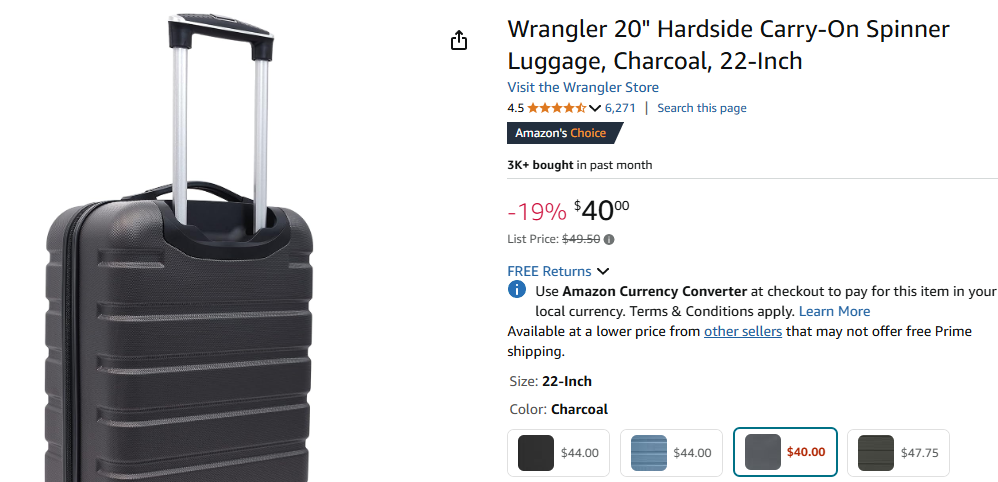Embarking on a long-haul flight can feel overwhelming, especially if comfort isn’t a given in economy class. With the right preparations, however, you can transform your flying experience into a much more enjoyable journey. The Travel Coaches have put together a comprehensive guide that zeroes in on essential tips to make those long hours in the sky feel less taxing.
In this guide, you’ll discover key strategies for selecting the ideal flight, organizing your travel documents, and preparing your body for extended travel. Learn how simple actions like staying hydrated, choosing the right outfit, and moving around during the flight can significantly impact your comfort. Additionally, you’ll find insider advice on timely airport arrivals and maintaining routines to make the journey pass more smoothly.
Picking the Right Flight
Consider Total Travel Time
When planning a long-haul trip, it’s essential to carefully consider the total travel time. Look beyond just the duration of the flight and factor in layovers. Some destinations might offer a choice between a 22-hour journey with multiple stops or a more efficient 15-hour trip with fewer layovers. Opt for the shorter, more direct route whenever possible, minimizing the time you spend in transit and reducing the physical toll of travel. This approach can help you arrive at your destination feeling more refreshed and less fatigued.
Opt for Night Flights
Flying at night has its advantages, especially for long-haul trips. Scheduling your flights during the nighttime can help sync your travel with your body’s natural sleep rhythms. This often makes it easier to fall asleep on the plane, aiding with fatigue and helping to manage jet lag upon arrival. Plus, arriving in the morning can give you a full day to start adjusting to the new time zone and enjoy your destination.
Choose Less Busy Days Like Tuesdays and Wednesdays
Choosing to fly on less busy days, such as Tuesdays and Wednesdays, can significantly enhance your travel experience. These mid-week days generally see lower passenger volumes, meaning airports and aircraft are less crowded. This often translates to shorter lines, quicker security checks, and potentially more space on the plane, making for a more comfortable and less stressful journey.
Preparing the Body
Get Quality Sleep Before the Flight
Ensuring you get plenty of quality sleep in the days leading up to your flight is crucial. A well-rested body is better equipped to handle the physical demands of travel. Aim to stick to your regular sleep schedule and ensure your sleeping environment is conducive to rest—dark, quiet, and comfortable. Avoid the temptation to sacrifice sleep in favor of last-minute packing or itinerary planning.
Exercise Regularly in the Days Leading Up to the Trip
Regular exercise in the days before your trip can help prepare your body for long periods of immobility. Engage in activities you enjoy, whether it’s a brisk walk, a jog, or a session at the gym. Not only does exercise help reduce stress and improve sleep quality, but it also boosts circulation, reducing the risk of developing travel-related discomforts such as deep vein thrombosis (DVT).
Increase Water Intake to Stay Hydrated
Staying hydrated is a key component of preparing for a long-haul flight. Increase your water intake in the days leading up to your departure. Staying well-hydrated helps maintain your energy levels, supports cognitive functions, and promotes overall well-being. Consider incorporating drinks with electrolytes to enhance hydration, especially if you’ll be consuming diuretics like coffee or alcohol during your flight.

This image is property of i.ytimg.com.
Have Your Documents Handy
Ensure Passports, Visas, and Insurance Are Ready
Double-check that all necessary travel documents, including your passport, visas, and health insurance, are valid and readily accessible. It’s particularly important to verify visa requirements for your destination well in advance to avoid any last-minute issues. Having these documents organized and secure will help ensure a smooth check-in and boarding process.
Make Digital and Physical Photocopies of Essential Documents
To safeguard against loss or theft, make digital and physical copies of all essential travel documents. Store digital copies on a secure cloud service and ensure they are accessible from your smartphone or another device. Keep physical copies in a separate, secure location within your luggage. This added layer of security can prove invaluable if you encounter an unexpected situation during your travels.
Charge Up
Fully Charge All Electronic Devices
Before heading to the airport, ensure all your electronic devices are fully charged. This includes smartphones, tablets, laptops, and any other gadget you’ll be using. Long flights can drain batteries quickly, especially if you’re using them for in-flight entertainment or work. Having a full charge gives you peace of mind and keeps your devices operational throughout your journey.
Pack Extra Batteries and Power Banks
In addition to fully charging your devices, pack extra batteries and power banks. Power banks can be lifesavers, particularly if your flight lacks in-seat power outlets or if you’re caught in an unexpected delay. Ensure these backup power sources are themselves fully charged and easily accessible in your carry-on bag.

Pick the Right Outfit
Wear Comfortable, Layered Clothing
Comfort is paramount when dressing for a long-haul flight. Opt for layered clothing that can be easily adjusted according to the fluctuating cabin temperatures. Start with a comfortable base layer, such as a soft t-shirt, and add a lightweight sweater or sweatshirt. A scarf or shawl can serve as an additional layer and also double as a blanket.
Choose Fabrics That Allow for Long Wear
Select clothing made from breathable, stretchy fabrics to keep you comfortable through the long hours of travel. Natural fibers like cotton or bamboo blends are excellent choices as they wick away moisture and allow your skin to breathe. Avoid tight-fitting clothes that can restrict movement and lead to discomfort over time.
Picking Your Seat
Consider Your Preferences: Window for Views, Aisle for Movement
Choosing the right seat can significantly enhance your flight experience. If you enjoy looking out at the landscape or using the window as a headrest, a window seat is a good choice. However, if you prefer ease of access to the restroom and freedom to move around the cabin, opt for an aisle seat. Understanding your personal preferences will help you select a seat that suits your needs.
Opt for Inside Aisle Seats to Minimize Disruptions
If you prefer an aisle seat but want to minimize disturbances from other passengers, consider selecting an inside aisle seat. These seats are often found in the middle section of the plane on larger aircraft. Sitting in an inside aisle seat means fewer people will need to squeeze past you, allowing for a more peaceful trip.

Get to the Airport Early
Arrive 2.5 to 3 Hours Before an International Flight
For international flights, arriving at the airport 2.5 to 3 hours early is standard practice. This window allows sufficient time for check-in, security screenings, and any unforeseen delays. You’ll also have a buffer to handle long lines or travel hiccups without the added stress of potentially missing your flight.
Allow Ample Time for Security and Boarding Procedures
Security and boarding procedures can be time-consuming, especially at busy airports. Give yourself ample time to navigate these processes smoothly. Running late through security can add unnecessary stress to your travel day, so prioritize early arrival to start your journey calmly and efficiently.
Get Stuff Ready
Organize Your Carry-On with Essential Travel Gear
An organized carry-on bag can make your flight more comfortable and stress-free. Pack essential travel gear such as noise-canceling headphones, an eye mask, neck pillow, and any in-flight entertainment like books or a tablet. Keeping everything neatly arranged and easily accessible will save you from rummaging around mid-flight.
Include Health Products Like Moisturizers, Chapstick, and Eye Drops
Airplane cabins are known for their dry air, which can sap moisture from your skin and eyes. Packing health products like moisturizers, chapstick, and eye drops can make a big difference in maintaining comfort during your flight. These items help keep your skin hydrated and prevent discomfort from dry cabin air.
Move Around
Plan Periodic Movements and Stretches During the Flight
Sitting for long periods increases the risk of stiffness and circulation issues. Plan to move around the cabin periodically and perform simple stretches to keep your blood flowing. Stand up, walk down the aisles when it’s safe, and do calf raises or ankle circles at your seat to promote circulation.
Avoid Stiffness and Promote Circulation
Regular movement and stretching are crucial to avoiding stiffness and maintaining good circulation. Implementing easy exercises, like seated stretches or light walking, can significantly reduce the discomfort associated with long-haul flights. Keeping active at intervals helps prevent the onset of deep vein thrombosis and keeps you feeling more comfortable throughout the journey.
Conclusion
Individual Travel Priorities Shape Preparation Routines
Remember, every traveler has unique needs and preferences, so your preparation routine might differ from others. Tailor these tips to suit your priorities and style of travel. The goal is to make your long-haul flight as comfortable and enjoyable as possible.
Invite Readers to Share Their Own Travel Preparation Tips
We’d love to hear your travel tips and experiences! What practices do you have for making long flights more bearable? Share your insights in the comments below and help fellow travelers improve their journeys.
Recommend Watching an Additional Video on Travel Essentials
For more travel tips and to ensure you’re fully prep for your next adventure, check out our video on must-have travel essentials for long flights. It’s packed with valuable information designed to make every trip a delight.
Encourage Liking, Subscribing, and Watching Future Content
Found these tips helpful? Make sure to like the video, subscribe to our channel, and stay tuned for more travel content. We’re here to help make your travels smoother, more enjoyable, and filled with unforgettable memories. Safe travels!
Some of the links on this site are affiliate links, which means I may earn a small commission if you click on them and make a purchase, at no additional cost to you. As an Amazon Associate, I earn from qualifying purchases.

